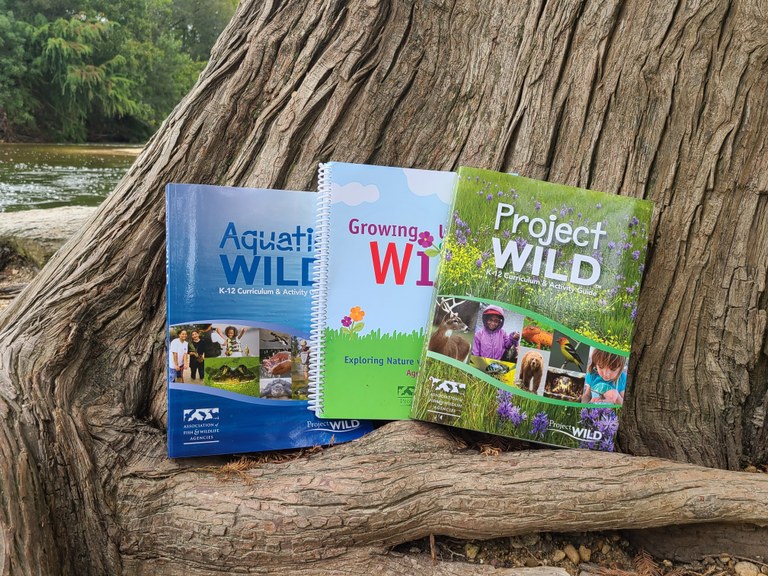Texas Project WILD Suite
TEKS Correlations | Workshops

Texas-Specific Supplement
WILD Activity Videos
A selection of activities that can be done whether or not you have a WILD book or training.
What is the Texas Project WILD Suite?
- Suite of 3 different WILDs
- Professional Development for educators
- Curriculum & Activity Guides
- For Pre-K through adults
- Suitable for classroom and informal settings
- Interdisciplinary
- Approved by Texas Education Agency for CPE and TEEAC credit
TPWD offers Project WILD through hands-on workshops for educators. With an unbiased approach to basic wildlife management practices, Project WILD:
- Teaches young people how to think about wildlife, not what to think
- Includes helpful, scientific background information with all activities
- Incorporates powerful techniques and methods for teaching problem solving and decision-making skills, and
- Is kid-tested and teacher-approved!
Why Project WILD?
As our planet grows more crowded every day, natural and wild places are rapidly diminishing . . . and so is wildlife. Project WILD explores how people can understand wildlife and habitat and make decisions that use natural resources wisely.
- Easy to use
- Works indoors or outdoors
- Correlated with TEKS
- Earn TEA approved CPE and TEEAC credit
- Activities develop conceptual skills such as analysis, classification, description, estimation, evaluation, inference, hypothesis formation, and problem solving
Who can use Project WILD?
- General Classroom teachers – Pre-K - 12; all subjects
- Specialist Teachers – G/T, Special Ed, ELL (check with your district about specialist credit)
- Educators in informal settings – nature centers, museums, zoos, parks
- Children/youth leaders – scouts, camps, youth groups
Project WILD Guides
The Curriculum & Activity Guides are at the heart of each workshop.
Project WILD K-12 Curriculum & Activity Guide contains 122 activities concentrating on terrestrial wildlife, habitat and ecological concepts.
Aquatic WILD K-12 Curriculum & Activity Guide contains 48 activities emphasizing aquatic wildlife and habitats..
Growing Up WILD is an early childhood education program that builds on children's sense of wonder about nature.
The guides help incorporate wildlife-related concepts into classroom curriculum, and each activity is designed to teach one or more of the following concepts:
- awareness and appreciation of wildlife,
- human values and the wildlife resource,
- habitat and ecological systems,
- wildlife conservation,
- cultural and social interaction with wildlife,
- environmental issues and trends, alternatives and consequences
- ecological systems and responsible human actions.
Each guide also includes quick-reference indices as well as a glossary of terms.
How was WILD developed?
- Follows a conceptual framework that was developed through a rigorous process to ensure its accuracy, balance and educational validity
- Was written by classroom teachers and other educators, university faculty, resource agency personnel, representatives of private conservation groups and other community representatives.
- Was extensively field tested and evaluated for student achievement. The program continues to be monitored and evaluated with changes made to the materials to respond to educator feedback and incorporate new information.
Who recognizes Project WILD?
Texas Education Agency through the Texas Environmental Education Advisory Committee (TEEAC), and for Continuing Professional Education (CPE)
The Wildlife Society: Conservation Education Award
The National Environmental Education and Training Foundation in Washington, D.C.: (CEE) National Environmental Education Achievement award for leadership in conservation education.
Endorsed by the National Council for the Social Studies
Consistent with recommendations of the National Science Teachers Association.
Additional Information
See Project WILD activities in action and listen to comments from a host of educators.
- TPWD TV segment: Educating the Educators
- National Project WILD: short version (4 minutes)
- National Project WILD: full length video (8 minutes)
Getting WILD About Environmental Literature (suggested reading list to supplement Project WILD activities)